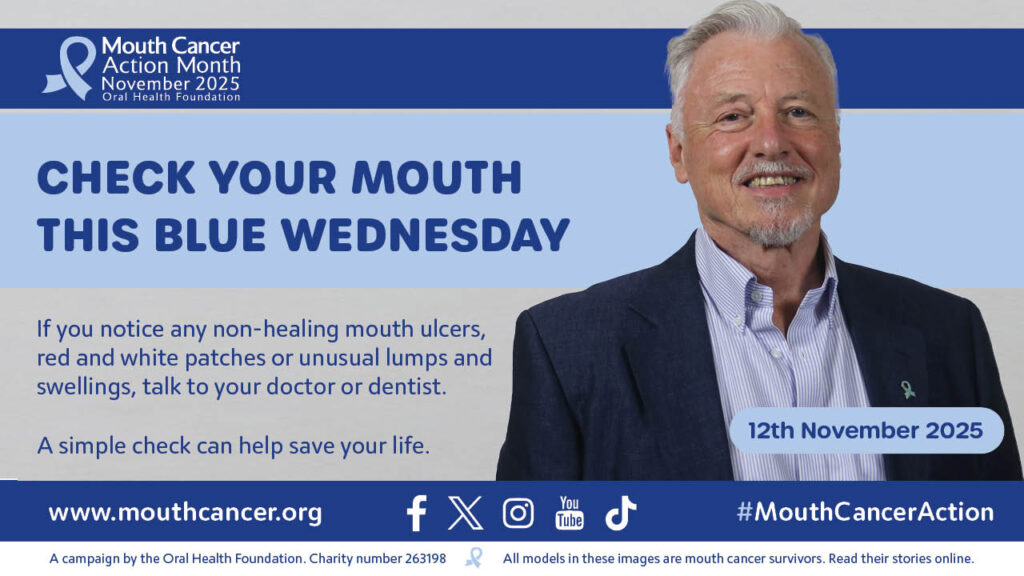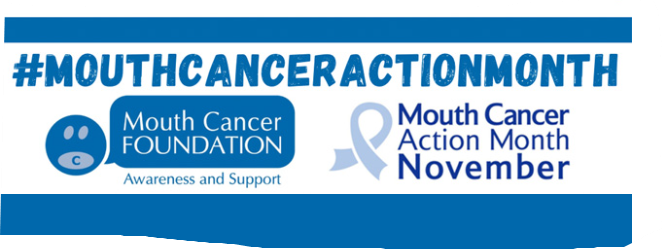
This November, in support of Mouth Cancer Action Month, NHS Shetland’s Public Dental Service is once again raising awareness of Mouth Cancer as cases in Scotland continue to rise.
To support this year’s campaign, the Public Dental Service is also offering a free mouth cancer screening drop-in clinic for anyone with concerns, whether they are registered with a dentist or not.
These will be held at the Grantfield Vaccination Centre in Lerwick on Monday 10 November between 9.30am and 12.30pm in the morning and again between 2pm and 4pm in the afternoon.
The latest available figures show that approximately 10,825 people in the UK were diagnosed with mouth cancer in the last year. This equates to one new case every hour.
Trends in mouth cancer are a cause for concern as in the last ten years, cases have risen by 38% in the UK. Latest research shows that recent deaths from mouth cancer in the UK have increased by 5% compared to last year, and deaths from mouth cancer have increased by 52% compared with ten years’ ago.
Unfortunately, mouth cancer is often not detected until it is at Stage 4, where it is at its most advanced. This makes treatment more complex and reduces the chances of survival. For this reason, campaigners are encouraging everyone to carry out regular self-checks at home, for any of the signs or symptoms of mouth cancer. These include non-healing mouth ulcers, red or white patches in the mouth or throat, any unexplained pain or swelling, difficulty eating or speaking or a persistent cough.
Angela Hopwood, Oral Health Improvement Nurse said: “Although often linked to lifestyle factors like smoking which accounts for 2 out of every 3 cases, excess alcohol, poor diets and HPV (human papilloma virus) also contribute to some cases. We are asking people in Shetland to be #MouthAware. Using this hashtag on social media will also provide further information about preventing mouth cancer.
“Importantly, carrying out a simple check of our mouths just once a month will help us to spot any changes and can greatly reduce the risks of late diagnosis. All you need is a bathroom mirror and a decent light source.
“Risk factors for mouth cancer include nicotine use in the form of smoking or chewing tobacco. Excessive drinking of alcohol when combined with nicotine can also increase the risk by up to 30 times. The full reason for this is not fully understood; however, it appears that alcohol increases the rate at which nicotine is absorbed into the oral soft tissues.
“Dental professionals are also becoming increasingly concerned about the recent popularity of oral nicotine pouches amongst our younger population, which can be concealed in the mouth against the gums for extended periods. Compared to traditional smoking, this increases the direct exposure time to oral tissues and therefore, the risk of harm. We strongly advise against their use, and would also encourage parents and guardians to have open discussions with teenagers about the risks of nicotine vapes and pouches. Vapes are only ever advisable when used to support stopping smoking. Current advice is: if you don’t smoke, don’t vape.”
Reduce Your Risk of Mouth Cancer: Prevention Checklist
To help protect yourself and others, consider the following lifestyle and health tips:
Healthy Habits
- Drink alcohol within recommended limits – support is available from Alcohol Brief Intervention at Healthy Shetland
- Stop smoking – support is available from Quit Your Way at Healthy Shetland (Tel: 01595 743330)
- Stop vaping – Quit Your Way can help with this too
- Eat a diet rich in fruit and vegetables – support is available from Making Changes Myself – Healthy Shetland
- Drink plenty of water
- Practice safer sex – support is available from NHS Shetland Sexual Health
- Use lip salve with SPF 20+ when spending extended time outdoors
There are additional risk factors such as diets low in fresh fruit and vegetables, contracting the HPV (Human Papilloma Virus), and excessive sunlight which is also a factor in cancers of the lip, especially for those who spend time outdoors like builders or crofters.
Know the Signs: What to Look Out For
Mouth cancer can affect anyone, regardless of age or gender. Be aware of any unusual changes in your mouth and seek medical advice promptly. Watch for:
- Mouth ulcers that don’t heal within 2–3 weeks
- Red or white patches in the mouth or throat
- Lumps, bumps, or swellings
- Unexplained pain or discomfort
- Difficulty eating, speaking, or swallowing
“Get to know your mouth. If in doubt, get checked out.”
No doctor or dentist will think you’re wasting their time — early detection saves lives.
Ahead of the free mouth cancer drop clinic, please note that these are not dental check-ups but purely to check for the signs and symptoms of mouth cancer concentrating on the soft tissues within the mouth and throat. We would encourage anyone concerned about any of the signs mentioned above to come along and get checked out. We would especially welcome those who meet the lifestyle criteria mentioned, as well as people who work outdoors for prolonged periods like crofters, fishermen, fish farm workers, builders and farmers.
As this is a drop-in clinic, please be aware that you may need to wait to be seen at busy times of the day.
Find Out More
For more information about mouth cancer and Mouth Cancer Action Month, visit:
www.mouthcancer.org
www.dentalhealth.org/mouthcancer
To watch a short video on how to carry out a self-check:
